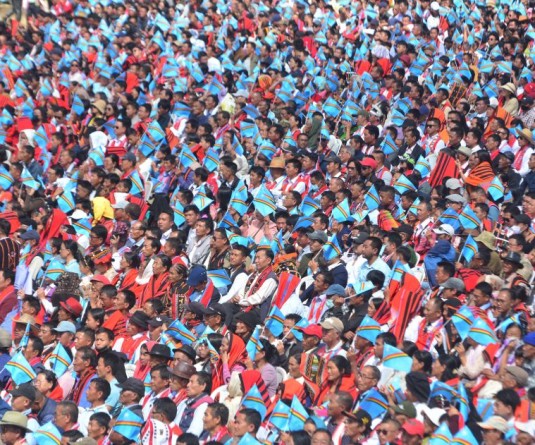
Dr John Mohan Razu
Democracy is based on a fundamental principle of political equality. In a democracy, each adult citizen must have one vote and each vote must have one value. On the 25th of November, 1949, BR Ambedkar spoke of the need to give up the grammar of anarchy, to avoid hero-worship, and to work towards a social, not just a political – democracy. His three warnings in his last speech to the Constituent Assembly resonate even today. As against the backdrop, Jug Suraiya in “The Times of India”, 6th February, 2024, wrote a short piece titled Minority report elucidated a couple of Bhaisahibs on their morning constitutional, discussing the Constitution.
He beautifully navigated his thoughts in precise terms: 1st Bhaisahib: That was an interesting article in TOI about why India became not just a democracy but also a republic. 2nd Bhaisahib: Yup. It said that a country can be a democracy and not be a republic, like UK, and that it can be a republic and not a democracy, like those banana republics. 1st Bhaisahib: But we in India have got a democracy and a republic. It’s like one of those combo offers where you buy a pizza and get a cola free. But there are some minor problems. 2nd Bhaisahib: What are these minor problems? 1st Bhaisahib: These minor problems are called minorities and it’s because of them that we became a democracy and a republic. 2nd Bhaisahib: Yeah? How’s that? I st Bhaisabhib: In a democracy – which comes from Greek word ‘demos’, meaning Janta – It’s we, the people, who call all the shots. 2ndBhaisahib: So, what’s wrong with we, the people, calling all the shots? Continuing further,
1st Bhaisahib: Nothing, except that our Constitution’s framers felt that while we, the people, calling all the shots would be a majority, there would also be a them, the people, who would be minorities and need to be protected from us majority people calling all the shots. That’s why we need to be a republic, so that there’d be constitutional rules to protect these minorities from our majoritarians shot-calling. 2nd Bhaisahib: I don’t understand. Why don’t these minority people just join us in shot calling? And then we’ll all be a majority, and we won’t need a republic to protect anyone any more. 1st Bhaisahib: That’s the minor problem with these minorities. They want to remain minorities, for some strange reason. 2nd Bhaisahib: Why? Just to be spoilsports? 1st Bhaisahib: Sort of. That’s the thing with minorities. And that’s why we need a republic. In candid manner Jug Suraiya, captured what is going on in this country.
What does the above conversation between 1st Bhaisahib and 2nd Bhaisahib mean to us? The essence of the entire conversation is premised on what BR Ambedkar said: “One person is equal to one vote until each citizen does not equal the same value in socio-economic terms which we all must struggle till we achieve it which is otherwise called as equality. It is in this context a question that is commonly asked: Is it possible to realize equality any time in human existence? Many tends to view equality is an abstract term because as long as we believe in institutions and structure, power and authority there is bound to be hierarchy and difference. Over and above, India being premised on a system of caste, inequality continues to dominate. Ins such arrangements inequality prevails in alarming ways.
Inequality prevails socially, economically, culturally, politically, and religious facets. It touches all aspects of life. Inequalities within and between countries are widening Many continues to argue that whether it is intellectual or physical inequalities tend to prevail and thus manifests in appalling ways. Inequalities manifest in caste, class, race, gender, religion, culture, and many others. Nonetheless, Homo sapiens continue to struggle to narrow down the inequalities and inequities. Humans have the capacity to change themselves and the situation around them. This is the crux wherein human being not on constructs the society they want and at the same time having the capacity to change if it dominates or exploits the majority.
As Indians, Christians, and minorities we live in our complexities. Some live in their comfort zones. There are Christians who have taken the changing political templates for granted or lightly. In general, we tend to push the buck on others offering all sorts of reasons especially those ecclesiastical episcopacy and the entire paraphernalia pointing at them and blaming the leaders for the current fiasco. By offering reasons they justify their inaction and passivity. we cannot go against so and so; being a fraction what else can be done, on and on and on. Unless and until You+I=We recognize and reckon with the fact that we are Indians thereby having equal value and worth like others and so believe that no force would come from nowhere to change the current equation: Majoritarian Vs Minoritarian which is anti-democratic, anti-constitutional, and anti-republic.




